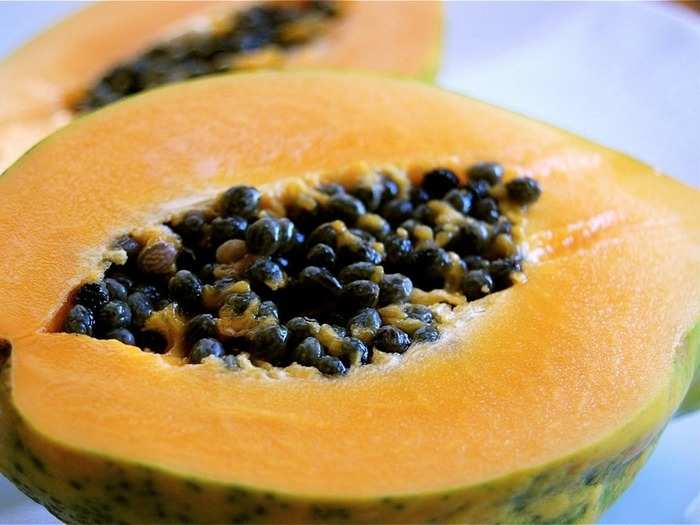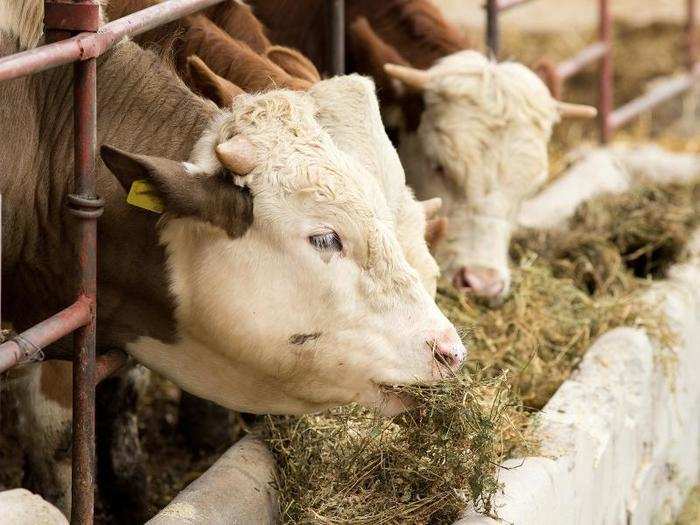It's almost impossible to avoid GMOs in these 7 everyday items
The corn we eat today has been modified with genes from living things that are not plants.

In the 1990s, papayas in Hawaii faced extinction without the help of GMO technology.

Papayas in Hawaii were facing destruction from the Ringspot virus, a disease transmitted to the fruit by insects. To fix the problem, scientists added a harmless gene from the virus into the papaya's DNA, giving papayas immunity to the virus. Today, most papayas are produced in Hawaii, though some come from Texas, California, and Florida as well.
Soybeans were genetically modified around the same time as corn and other crops to resist herbicides like RoundUp.

Soy seems to be everywhere these days: From edamame and soy sauce to soy lecithin, which is used to help thicken things like salad dressing, it's almost unavoidable. Soybeans were genetically modified around the same time as corn and other crops to be resistant to herbicides.
According to the USDA, 94% of US soybeans are GMO.
GMOs aren't only in the food we eat — Modified cotton makes up a majority of the close we wear as well.

GMO cotton was adopted by farmers around the same time as soybeans and corn, but doesn't get as much attention as its food-related counterparts.
Some cotton plants are genetically modified to keep cotton bollworms from destroying crops, and others are weedkiller-resistant. About 94% of American cotton is genetically modified, according to the USDA.
So if you're trying to avoid GMOs, you'll have to switch to silk or organic cotton.
In 2005, the USDA approved genetically modified sugar beets, which is one of the main sources of sugar.

Most of the sugar we eat comes from one of two sources: sugar cane or sugar beets. The beet plants are resistant to RoundUp. Its key weed-killing ingredient is glyphosate.
Approximately 95% of US sugar beet crops were GMO as of 2010; this accounts for roughly 52% of all the sugar made in the US.
If you love fried, crispy foods, chances are it was fried in some genetically modified canola oil.

Rapeseed, the plant that's used to make canola oil, is another crop that's genetically modified to be used in combination with herbicides that kill weeds but leave the plants untouched.
Canola oil is used in cooking exactly like olive oil, so it shows up in a lot of prepared meals you buy at the grocery store, like potato salad or coleslaw. It's also used to deep-fry a lot of foods, including McDonald's french fries. About 90% of US canola oil was genetically modified.
Genetically modified alfalfa could change the way we feed livestock.

Unless you're really into alfalfa sprouts, you're not going to run into much genetically modified alfalfa during the course of your day. But it is used to feed livestock, like these cows chowing down on a mix of alfalfa and hay.
Alfalfa, like many other crops, was genetically engineered to resist glyphosate, which is a chemical used to kill weeds, and got FDA approval in 2011.
Shortly after its approval, officials predicted that about 50% of alfalfa made in the US will be genetically modified, according to The Wall Street Journal.
Popular Right Now
Popular Keywords
Advertisement